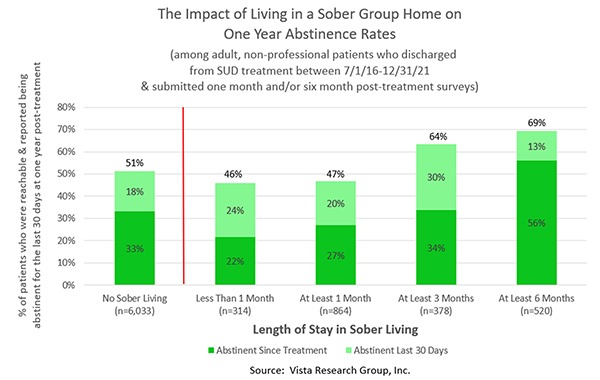Hi Baffled,
First of all, thank you for the tremendous support you’re providing to your friend. Having you on her side dramatically increases her chance of achieving long-term recovery. It would be wonderful if every person struggling with addiction had the support of a proactive friend like you!
I think your recommendation that your friend go to a sober living home is right on. Living in a recovery residence for an extended period will dramatically improve the chances of her recovery.
I wish I could tell you it is easy to find a good sober group home near you, but it’s not. Historically, just about anyone with an empty bedroom could say they were running a sober group home, and horror stories abounded. Fortunately, practitioners running high-quality facilities saw the need to differentiate themselves and banded together as the National Alliance of Recovery Residences (NARR) to create industry standards. Statewide alliances have formed under the NARR umbrella to accredit homes meeting these standards in about half of the states . If you’re in one of these states, googling “Alliance Recovery Residences” and the name of your state should lead you to a website with a list of group homes that have been judged to meet NARR’s standards.
In addition to limiting your search to accredited homes if possible, I also recommend you make sure that homes you consider provide an adequate level of supervision. NARR divides recovery residences into four support levels, ranging from Level One, where the residents monitor themselves, to Level Four, where the home is part of a treatment center. Since your friend was in treatment for such a short time, my strong recommendation would be for her to find an Intensive Outpatient program that also offers transitional housing. That would ensure she was living in a supervised environment and receiving at least nine hours of group and/or individual therapy a week. If she can’t or won’t attend additional treatment, she should live in at least a Level 2 (and preferably a Level 3) recovery residence for an extended period.
Before making a final decision, I would talk to the house manager directly and ask about both their policies and their turn-over rate of staff and residents. It would be great if you could also talk to community members who are familiar with the home, perhaps through attending local AA or Al-Anon meetings, to see if it has a good reputation in the recovery community.
Once you find a home, our research shows that your friend should plan to live there for at least three months and preferably longer:


